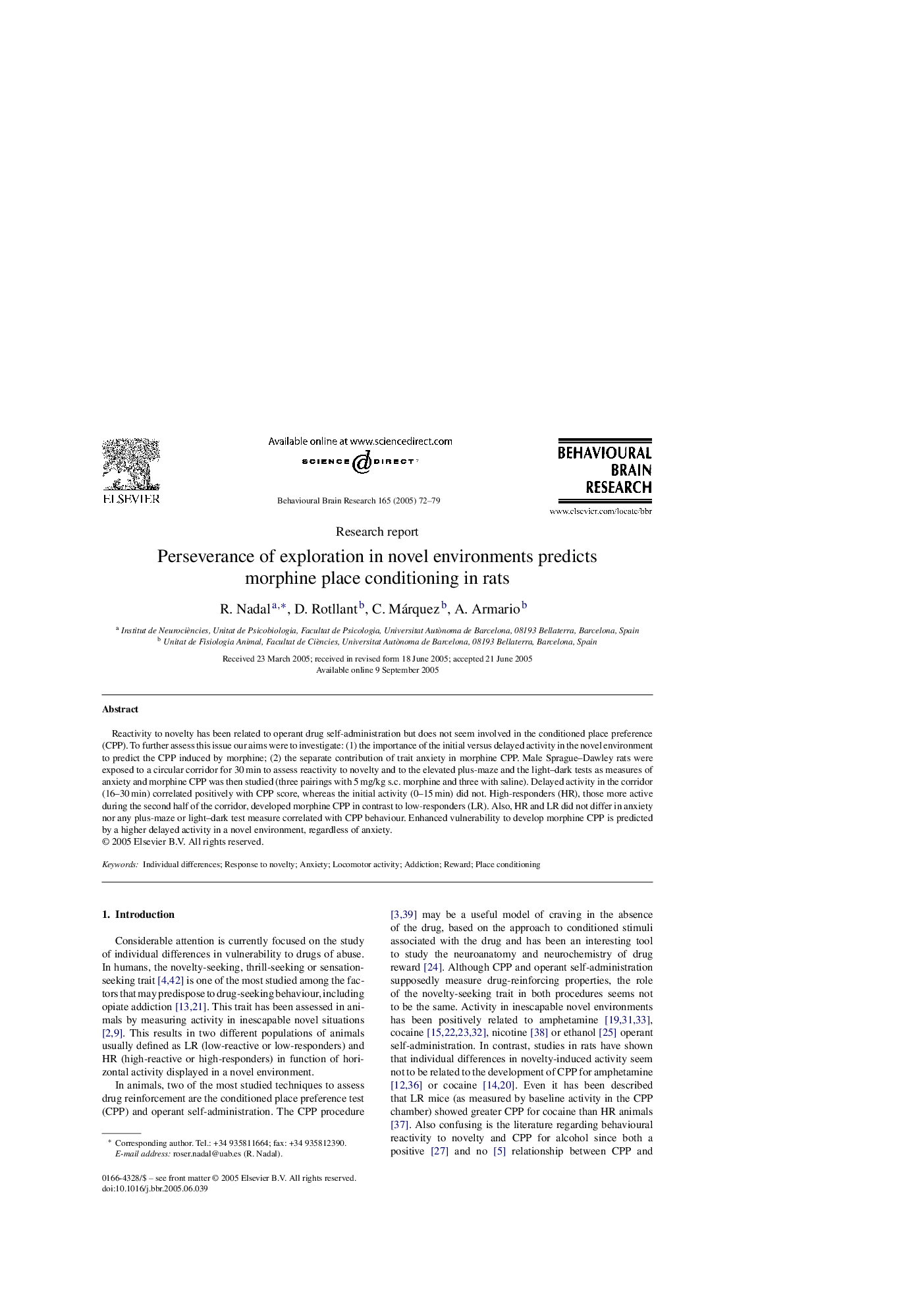| Article ID | Journal | Published Year | Pages | File Type |
|---|---|---|---|---|
| 9406454 | Behavioural Brain Research | 2005 | 8 Pages |
Abstract
Reactivity to novelty has been related to operant drug self-administration but does not seem involved in the conditioned place preference (CPP). To further assess this issue our aims were to investigate: (1) the importance of the initial versus delayed activity in the novel environment to predict the CPP induced by morphine; (2) the separate contribution of trait anxiety in morphine CPP. Male Sprague-Dawley rats were exposed to a circular corridor for 30Â min to assess reactivity to novelty and to the elevated plus-maze and the light-dark tests as measures of anxiety and morphine CPP was then studied (three pairings with 5Â mg/kg s.c. morphine and three with saline). Delayed activity in the corridor (16-30Â min) correlated positively with CPP score, whereas the initial activity (0-15Â min) did not. High-responders (HR), those more active during the second half of the corridor, developed morphine CPP in contrast to low-responders (LR). Also, HR and LR did not differ in anxiety nor any plus-maze or light-dark test measure correlated with CPP behaviour. Enhanced vulnerability to develop morphine CPP is predicted by a higher delayed activity in a novel environment, regardless of anxiety.
Keywords
Related Topics
Life Sciences
Neuroscience
Behavioral Neuroscience
Authors
R. Nadal, D. Rotllant, C. Márquez, A. Armario,
